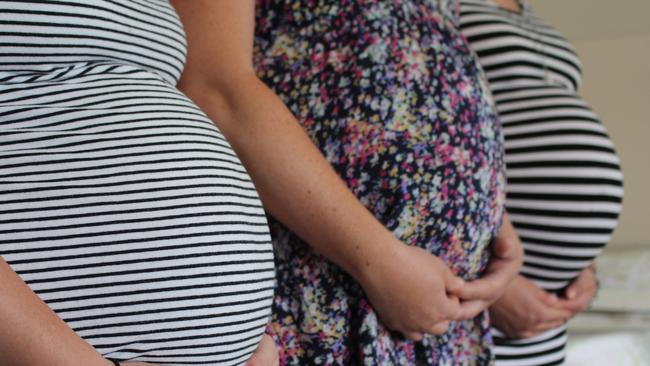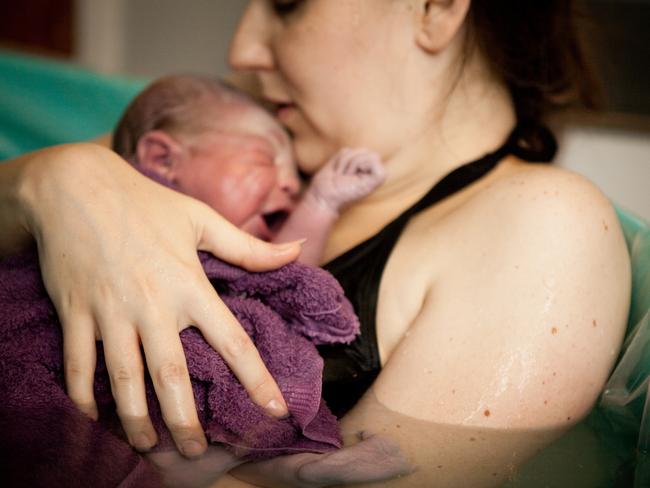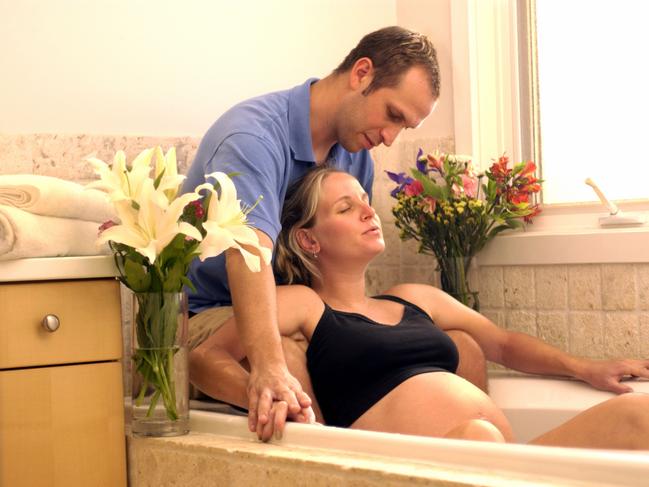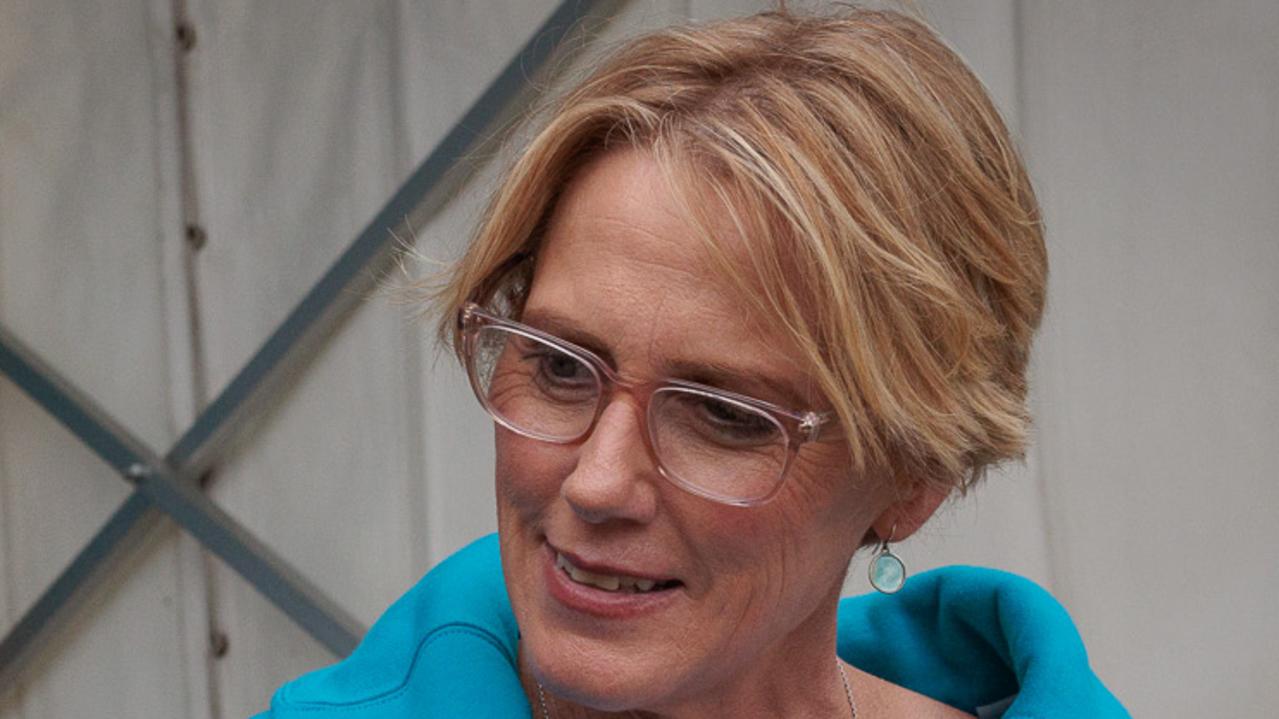Peak midwifery body warns against blanket water birth restriction amid COVID-19 pandemic
A coronavirus-enforced change could have long-term implications on the health of mums and bubs, the peak midwifery body has warned.

Midwives are growing increasingly concerned about the impacts COVID-19 could have on the long-term health of mothers and children as women are denied access to showering and bathing.
It comes as the Australian College of Midwives (ACM) rebuked a growing number of hospitals around the country that have banned water immersion and showers for women in labour and during birth.
The move appears to be in response to a recommendation made by the Royal Australian and New Zealand College of Obstetricians and Gynaecologists (RANZCOG) that suggests water immersion should be suspended for all women in COVID-19 hot spots, including women who have not contracted the virus.

ACM midwifery adviser Megan Cooper said the RANZCOG recommendation did not appear based on clinical evidence and called on water immersion and showering for labouring women to be reinstated.
“We have 30 years of research that demonstrates women who use warm water, whether that be in showers or baths, to labour or birth, it’s actually a form of pain relief. It helps manage pain,” she said.
“In addition to that, there are psychological benefits. Some research I’ve been involved in shows that women have better mind-body synergy, can work better and are more in control if they have access to water immersion or showering.
“It’s also a privacy thing. It’s a barrier that separates them and provides their own sanctuary, allowing them to feel calm and connected to their body and baby.
“There are a multitude of benefits.”
In the latest update, RANZCOG said “in the setting of increased community transmission of COVID-19, services are advised to suspend the use of water immersion for labour and birth for all women”.
“The protection of our maternity and neonatal health care workforce is essential,” the statement read.
“PPE is not effective when wet, and consequently, the use of water immersion during this period presents an unacceptable risk.”

In Victoria, the Department of Health took to Twitter to clarify that showers were still available for women.
“Temporary guidance from Safe Care Vic for maternity providers and midwives advises against water births,” they said in a tweet.
“PPE (personal protective equipment) is not effective when wet – safely caring for women in a bath presents an unacceptable COVID-19 risk for healthcare workers at this time.
“Pregnant women are still able to use a shower. This guidance is being reviewed and updated weekly, and water birth will be available again when it’s safe for all involved.”
Ms Cooper said for women giving birth amid the COVID-19 pandemic, there were added layers of uncertainty around labour and birth.
“Women make a birth plan, and if they’ve chosen to use water, that option is stripped away from them,” she said.
“The psychological impacts of that are a concern. It has impacts on how the woman feels about herself which impacts on bonding time, skin to skin … we know the really early post-natal period is so significant to the short and long-term health of both mother and child.
“Anything that intervenes on the woman’s experience has potentially serious effects.”
The ACM recognises the potential risk of COVID-19 transmission in birth and labour but said the decision to deny a woman access to water immersion should be made on a case-by-case basis.
“If the woman is known to not have COVID or be low risk, we would think it would be legitimate to offer her the usual care,” Ms Cooper said.
“Absolutely, in those cases where the woman has tested positive or there is a strong suspicion she might have the virus, that would be the situation where those difficult decisions have to be made.
“But if she is well and not positive, the impacts on her birth experience needs to be factored in … we need to listen to every individual woman’s need.
“This is unprecedented, it is difficult, but we have to work with women.”
Ms Cooper said another concern was the denying of access to non-pharmacological pain relief.
“If women have chosen to use non pharmacological pain relief like water immersion and showering and that is taken away from them, the only other method of pain relief could be pharmacological, which has risks and side effects,” she said.
“The accumulation can make women feel like they aren’t in control, and positive birth experiences are about control.”
COVID-19 is not a waterborne virus, and there are some suggestions immersing in warm water may actually reduce the risk of transmission.
“Water has the effect of diluting any virus particles that may be present, providing some level of protection against transmission, particularly when compared with land birth,” Ms Cooper said.
“ACM supports recommendations that have been implemented to slow and stop the spread of COVID-19, but this new recommendation is nonsensical. We are now denying women an effective option of pain relief and the opportunity to achieve a normal, physiological birth that is a positive and satisfying experience for no evidence-based reason.”


